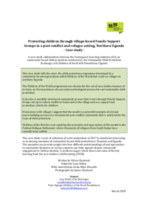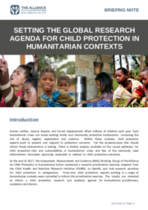Tracing the pathway from mental health screening to services for children and youth in foster care
This study presents longitudinal analyses of the case flow of youth aged 3–17 in Washington State's foster care system, tracking rates of screening, scoring above or below clinical criteria cutoff scores, and service receipt.


